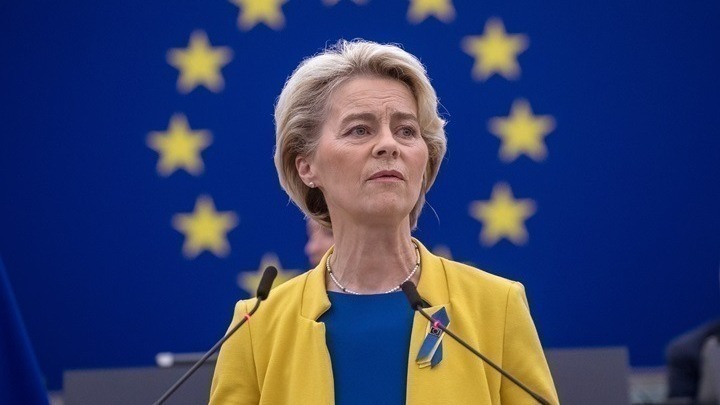Despite a hard confrontation with Belgium over a loan to Ukraine from the frozen Russian assets, the idea still lives on.
This is stated by the President of the European Commission, Ursula von der Leyen, at a press conference after the EU summit in Brussels on Thursday.
– The European Commission will continue to explore the possibility of a replacement loan to Ukraine taken from the frozen Russian assets, says von der Leyen.
The “final decision” on the loan will then be made at the EU summit in December, says the President of the EU, António Costa.
– No one vetoed anything today. We made an important decision that we will support Ukraine financially in 2026 and 2027.
– Different leaders raised technical questions that now need to be examined. And then we will make the final decision at the summit in December, says António Costa.
The announcement comes after the leaders of the EU countries were in lengthy discussions, which surprisingly ended with the reference to the loan being removed from the conclusions of the summit at the last moment.
However, this does not mean that the loan has been abandoned, emphasizes von der Leyen.
– We had a good discussion about the replacement loan. It clarified conditions that need to be examined.
– We agree on what needs to be done. It is the replacement loan. But not how. That is, how it should be structured, says von der Leyen.
The loan of a total of 140 billion euros was, according to the European Commission’s plan, supposed to keep Ukraine running for the next two years of the war.
But then Belgium’s Prime Minister Bart De Wever entered the scene with a political tackle at knee height.
Belgium is central to the issue because the 140 billion is frozen in the Belgian securities settlement Euroclear.
Therefore, Bart De Wever demands solid guarantees that Belgium will not bear the responsibility if the plan goes wrong. And it will, De Wever implied:
– There is a great risk. We will be exposed to enormous compensation claims, said Bart De Wever.
In addition to compensation claims, Russia, according to Bart De Wever, could also declare Belgian and other European companies in Russia bankrupt and take them over.
– The leaders of the EU countries need to understand that if we take Putin’s money, he will take our money.
– European companies will be taken over in Russia. Western money that is frozen in Russia will be taken. And perhaps countries that are friendly towards Russia will do the same, said Bart De Wever.
Ursula von der Leyen is now looking to find solutions to the objections from the Belgian Prime Minister.
– It is also important to emphasize that we will respect European legislation in the initiative, she says.
Thus, the EU is now postponing the decision entirely to the deadline.
Ukraine’s President, Volodymyr Zelenskyy, indicated at the summit that the money needs to be disbursed soon:
– Ukraine needs the money in 2026. And it is best if we receive the money at the beginning of 2026, said Zelenskyy.
A centrally placed EU official stated in early October that Ukraine will run out of money by the end of the first quarter of 2026.
After that, according to the official, Ukraine will face an “economic collapse,” which will pose a “security risk” to all of Europe if the EU does not step in.
 go to the original language article
go to the original language article
